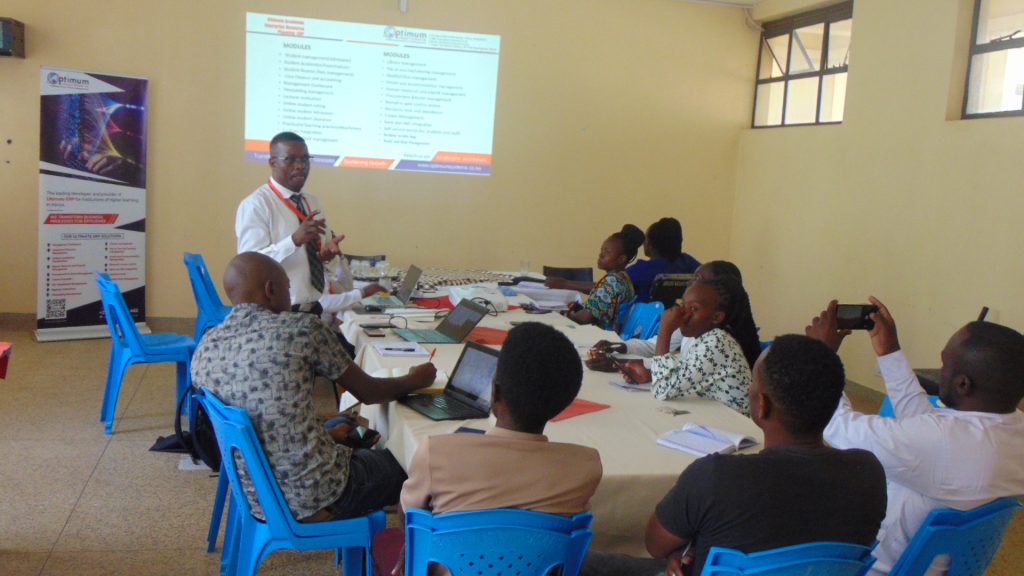Nestled in the vibrant Kakamega County, Butere Technical and Vocational College (BTVC) stands as a cornerstone of skill-based education in Western Kenya. As we gear up for the 2025/2026 academic cycle, this institution is poised to equip Kenyan youth and professionals with the practical tools they need to thrive in today’s competitive job market. For business professionals, educators, and parents across Kenya, understanding the courses offered at Butere Technical and Vocational College is a critical step toward guiding the next generation—or even yourself—into a rewarding career.
Why Butere Technical and Vocational College Stands Out in 2025
Butere TVC isn’t just another training institution—it’s a hub of opportunity strategically located in Butere, Kakamega County, roughly 30 kilometers from Kakamega town. Established under the Ministry of Education and accredited by the Technical and Vocational Education and Training Authority (TVETA), BTVC has earned its stripes as a go-to college for hands-on learning. With Kenya’s youth population—over 75% of whom are under 35 (KNBS, 2023)—seeking viable career paths, TVETs like Butere are stepping up to bridge the skills gap.
The Kenya Private Schools Association reports that over 2.1 million primary and 277,000 secondary students are enrolled in private institutions, many of whom transition to vocational training post-KCSE. BTVC caters to this demographic with programs examined by the Kenya National Examinations Council (KNEC) and aligned with the Competency-Based Education and Training (CBET) framework. For business professionals, this translates to a steady supply of skilled graduates in fields like civil engineering, ICT, and community development—sectors driving Kenya’s Vision 2030 agenda.
So, what’s on the table for 2025/2026? Let’s break down the full list of courses at Butere Technical and Vocational College and see how they can shape your future.
Diploma Courses at Butere Technical and Vocational College for 2025/2026
Diploma programs at BTVC are designed for students with a minimum KCSE grade of C- (minus), offering in-depth training over 9 terms (about 3 years). These courses blend theory with practical skills, making graduates job-ready. Here’s the complete lineup:
- Diploma in Community Development and Social Work (Programme Code: 3710552)
- Focus: Equips students to work in NGOs, government projects, and community initiatives.
- Why It Matters: With Kenya’s focus on social equity, roles in community development are in demand.
- Accounting Technician Diploma (Programme Code: 3710601)
- Focus: Covers financial accounting, taxation, and auditing basics.
- Why It Matters: SMEs, a backbone of Kenya’s economy (over 30% of GDP per KNBS), need skilled accountants.
- Diploma in Information Communication Technology (Programme Code: 3710758)
- Focus: Trains students in networking, software development, and IT support.
- Why It Matters: Kenya’s ICT sector grew by 10.8% in 2023 (KNBS), signaling strong job prospects.
- Diploma in Electrical & Electronic Engineering (Power Option) (Programme Code: 3710917)
- Focus: Prepares students for power systems, electronics, and renewable energy roles.
- Why It Matters: Kenya’s electrification push (e.g., Last Mile Connectivity Project) needs engineers.
Fresh Insight: The rise of renewable energy projects like solar farms in Garissa means electrical engineering grads are hot commodities in 2025.
Certificate and Craft Courses at Butere Technical and Vocational College
For those with a KCSE D (plain) or below, BTVC’s certificate and craft courses offer accessible pathways to skilled trades. These programs typically run for 6 terms (2 years) and emphasize hands-on training. Here’s what’s available:
- Certificate in Computerized Secretarial Studies (Programme Code: 3710802)
- Focus: Teaches office administration, typing, and computer skills.
- Why It Matters: Administrative roles remain steady in Kenya’s growing corporate sector.
- Certificate in Community Development and Social Work (Programme Code: 3710956)
- Focus: Entry-level training for community support and social services.
- Why It Matters: Pairs well with the diploma for progressive career growth.
Data Point: Over 59,000 private school students sat for KCSE in 2024, with many eyeing TVETs like BTVC for practical skills .
Competency-Based Education and Training (CBET) Courses
BTVC embraces Kenya’s CBET framework, offering leveled courses from Level 4 (artisan) to Level 6 (diploma-equivalent). These programs align with the Competency-Based Curriculum (CBC), focusing on measurable skills:
- Level 6 (Diploma Equivalent):
- Civil Engineering Level 6 (Programme Code: 3710336)
- Covers structural design, road construction, and project management.
- Perfect for Kenya’s infrastructure boom (e.g., SGR Phase 2B).
- Building Technology Level 6 (Programme Code: 3710705)
- Focuses on advanced construction techniques and site supervision.
- Ties into Kenya’s affordable housing agenda.
- Civil Engineering Level 6 (Programme Code: 3710336)
- Level 5 (Craft Equivalent):
- Plumbing Level 5 (Programme Code: 3710936)
- Trains students in pipework, sanitation, and water systems.
- High demand in urban and rural water projects.
- Plumbing Level 5 (Programme Code: 3710936)
Insight: CBET’s flexibility lets students build skills incrementally, a boon for CBC graduates entering TVETs in 2025.
Artisan Courses at Butere Technical and Vocational College
For those with KCPE or minimal formal education, artisan courses provide a fast track to employment. These short-term programs (1–2 years) are all about practical mastery:
- Artisan Craft in Food & Beverage (Programme Code: 3710A47)
- Focus: Basic culinary arts, food prep, and service skills.
- Why It Matters: Kenya’s tourism sector, contributing 8.8% to GDP (KNBS, 2023), needs hospitality pros.
Pro Tip: Artisan skills like food and beverage are gold in Butere’s local hospitality scene—think hotels and eateries along the Kisumu-Busia corridor.
Entry Requirements for Butere TVC Courses
Wondering if you qualify? Here’s the breakdown:
- Diploma Courses: KCSE C- (minus) or equivalent; specific subjects (e.g., Math, Physics) may apply for technical programs.
- Certificate/Craft Courses: KCSE D (plain) or below; some require D+ in English/Kiswahili.
- Artisan Courses: KCPE certificate or higher; no strict grade cutoff.
- CBET Levels: Vary by level—Level 6 needs C-, Level 5 needs D+, Level 4 is open to KCPE holders.
Insight: BTVC’s inclusive entry criteria make it a lifeline for students who didn’t ace KCSE but have the drive to succeed.
How to Apply for Butere Technical and Vocational College Courses
Ready to join the 2025/2026 cycle? Here’s how:
- Via KUCCPS:
- Visit www.kuccps.ac.ke.
- Use program codes (e.g., 3710336 for Civil Engineering Level 6).
- Apply between January and March 2025 (exact dates TBD).
- Pay KES 1,500 (subject to change).
- Direct Application:
- Download forms from www.buteretvc.ac.ke (or check availability).
- Submit with KCSE/KCPE certs, ID, and KES 500 fee to BTVC, P.O. Box TBD, Butere.
- Contact: Call or email via official channels (details on website).
Fees: Expect KES 15,000–40,000 per term, depending on the course. HELB loans and county bursaries can ease the load—over 70% of TVET students qualify (TVETA, 2023).
Career Opportunities After Studying at Butere TVC
What’s the payoff? Here’s how BTVC courses translate to jobs:
- Engineering (Civil, Electrical): Site supervisors, technicians, renewable energy installers. Average salary: KES 30,000–70,000/month .
- ICT: Network admins, IT support staff. ICT jobs grew 12% in 2023 (KNBS).
- Community Development: NGO officers, social workers. Entry-level pay: KES 25,000–50,000/month.
- Hospitality: Chefs, waitstaff. Tourism jobs pay KES 15,000–40,000/month.
- Plumbing: Contractors, water project workers. Informal sector earnings: KES 20,000–60,000/month.
Data Insight: TVET grads have a 70% employment rate within a year (TVETA, 2023), outpacing many university peers.
Why Choose Butere Technical and Vocational College?
- Practical Focus: Hands-on training beats theory-heavy degrees for quick employability.
- Affordability: Fees are a fraction of university costs (KES 56,420/year avg. for TVET vs. KES 150,000+ for unis).
- Industry Alignment: Courses match Kenya’s Big Four Agenda—housing, manufacturing, and more.
- Location Perk: Butere’s accessibility from Kakamega and Kisumu makes it a regional hub.
Fresh Take: With Kenya’s informal sector employing 83% of workers (KNBS, 2023), BTVC’s artisan and craft courses are a direct ticket to self-employment.
Challenges and Opportunities for 2025/2026
- Challenges: Limited slots (e.g., 20 trainees max per technical course) mean early application is key.
- Opportunities: New CBET courses like Plumbing Level 5 tap into growing sectors like water sanitation, backed by projects like the Lake Victoria Water Initiative.
Comparing BTVC to Other TVETs in Western Kenya
How does Butere stack up?
- Vs. Sigalagala National Polytechnic: Sigalagala offers more courses (50+), but BTVC’s smaller size means more personalized attention.
- Vs. Bushiangala TTI: Both share engineering strengths, but BTVC’s hospitality focus gives it an edge in tourism-heavy Western Kenya.
- Vs. Kisumu Polytechnic: Kisumu has urban appeal, but BTVC’s rural setting cuts living costs.
Insight: BTVC’s niche in community development and artisan trades makes it a standout for local job markets.
Secure Your Spot at Butere Technical and Vocational College
The full list of courses offered at Butere Technical and Vocational College for 2025/2026 is your gateway to a career that pays off—literally and figuratively. Don’t sleep on this—pick your top programs, mark your calendar for KUCCPS applications , and reach out to BTVC at www.buteretvc.ac.ke or their official contacts.





